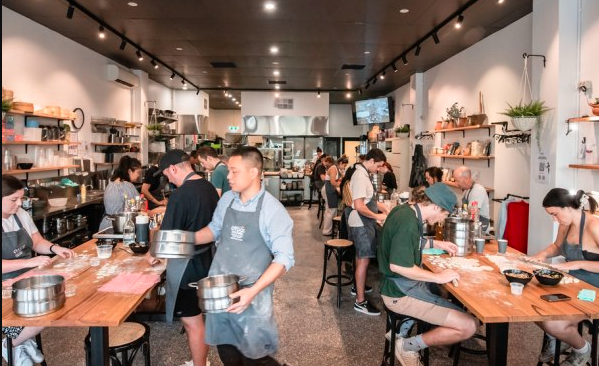Why Commercial Kitchen Rental Is a Game-Changer for Food Entrepreneurs

In the fast-paced world of food and beverage, launching or growing a business often comes with significant overhead costs. One of the biggest hurdles for chefs, bakers, caterers, and food startups is securing a professional-grade kitchen. That’s where commercial kitchen rental comes in—a flexible, cost-effective solution that is transforming how food businesses operate today.
What is a Commercial Kitchen Rental?
A commercial kitchen rental is a fully equipped, licensed kitchen facility available for rent by the hour, day, or on a long-term basis. These kitchens meet all health and safety regulations, offering professional-grade appliances, prep areas, storage, and sanitation tools. They are often used by food trucks, meal prep services, bakers, catering companies, and even food product developers who need a reliable and certified space to work in.
Why Rent a Commercial Kitchen?
There are several reasons why food businesses are increasingly choosing kitchen rentals over owning or leasing traditional brick-and-mortar spaces:
1. Lower Startup Costs
Buying equipment, securing permits, and constructing a kitchen space can cost tens of thousands of dollars. Renting a commercial kitchen significantly lowers those upfront expenses, allowing entrepreneurs to invest more in product development and marketing.
2. Licensing and Compliance
Health and safety regulations are strict in the food industry. Commercial kitchens come pre-inspected and compliant with local health department rules. This allows food businesses to operate legally without the headache of managing permits and certifications.
3. Scalability
As your business grows, so do your kitchen needs. A commercial kitchen rental allows you to scale up easily—whether you need more hours, additional equipment, or more space. This flexibility is especially useful during high-demand seasons like holidays or special events.
4. Shared Resources
Many rental kitchens operate on a shared model, where multiple businesses use the same facility at different times. This setup fosters collaboration and reduces costs. You might share storage, utilities, or even ideas with fellow entrepreneurs, building a strong food business community.
Ideal Use Cases for Commercial Kitchen Rentals
- Caterers who need a large prep space for events.
- Food trucks that require a base kitchen for storage and prep.
- Bakers and pastry chefs who want access to professional ovens and mixers.
- Meal prep services creating large quantities of food for delivery.
- Test kitchens for recipe development or product testing.
- Ghost kitchens focusing solely on delivery and takeout.
Choosing the Right Kitchen
When selecting a commercial kitchen rental, consider the following factors:
- Location: Proximity to your delivery zone or customer base.
- Equipment: Ensure the kitchen has the appliances and tools your business needs.
- Availability: Make sure you can book time slots that match your workflow.
- Storage Options: Access to dry, refrigerated, and freezer storage is a big plus.
- Support Services: Some kitchens offer add-ons like cleaning, packaging, or ingredient sourcing.
The Future of Commercial Kitchen Rentals
The rise of food delivery platforms, ghost kitchens, and culinary startups has fueled the demand for flexible kitchen solutions. As more entrepreneurs look for agile ways to start or expand their businesses, commercial kitchen rentals are becoming an essential part of the food industry ecosystem.
Additionally, with sustainability becoming a growing concern, shared kitchen spaces help reduce waste and energy consumption, making them an eco-friendly choice for conscious entrepreneurs.
Final Thoughts
Whether you’re a seasoned caterer or a first-time food entrepreneur, renting a commercial kitchen offers a smart, scalable way to bring your culinary vision to life. With reduced costs, legal compliance, and access to professional facilities, it’s no wonder that commercial kitchen rental has become a cornerstone for success in the modern food and beverage industry.





